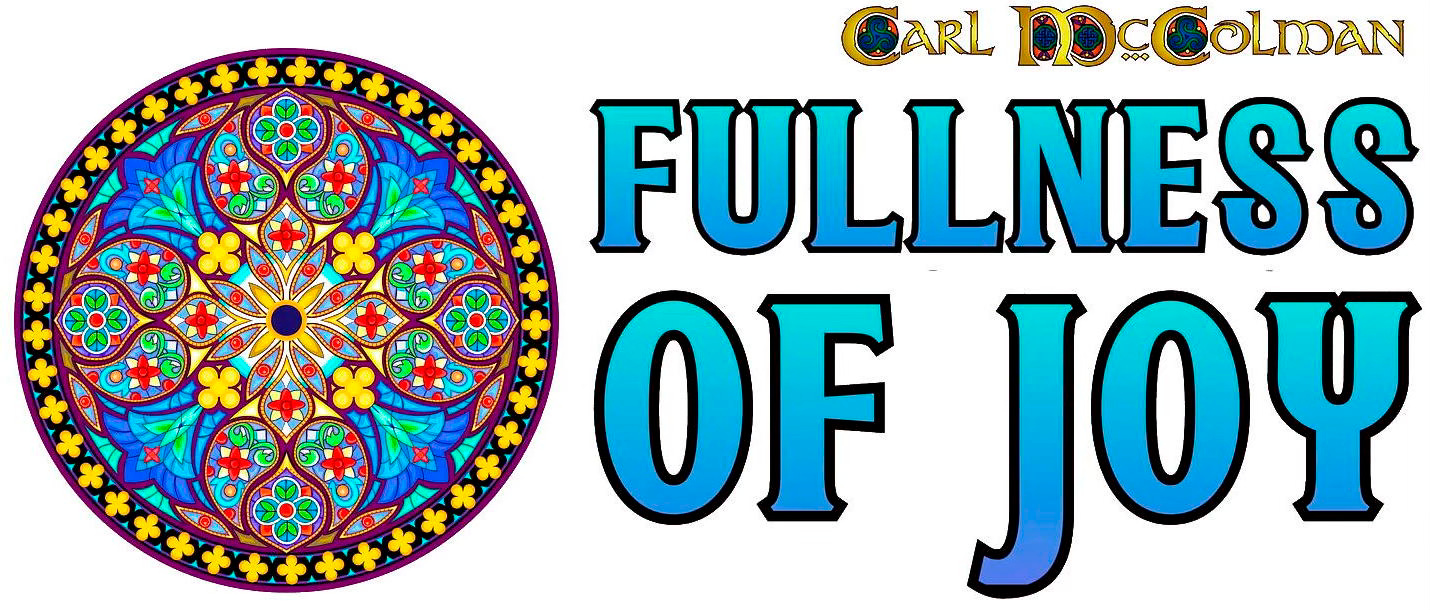Like Building a Cathedral
We need to foster a culture of kindness, civility and respect — even if we won't live to see the fruit of our labor.

“The publishers just want books about rich people being mean to one another.”
It was sometime in the mid 1980s, between the summer of 1984 when I got my master’s degree and the middle of 1987 when I moved to Atlanta. I was living in Northern Virginia and a member of St. Alban’s Episcopal Church in DC, a small and charming stone church on Wisconsin Avenue, adjacent to (and dwarfed by) the magnificent Washington National Cathedral. Because I was shy and an introvert, I did not make many friends during the few years I worshipped at St. Alban’s, but one person I did connect with was a woman a little bit older than me named Marcy, who had written several novels that had been released by major publishers. Even though my ambition was to write spiritual nonfiction rather than novels, I still approached her to see if she would give an aspiring writer some advice. She graciously met me for lunch and we chatted about the ins and outs of professional writing.
She was very balanced in her advice to me, pairing words of encouragement with a clear-eyed assessment of the challenges facing authors. She pointed out how hard it was not only to get published, but to actually sell books — and even then, if your books did not sell at a certain level, you could expect the publisher to decline to publish another one.
But the one line that burned into my memory, and that I have often quoted in the years since we talked, was her wry and almost cynical declaration about what the publishers were mainly looking for. Forty years later, and those words still echo in my mind. From Pretty Little Liars to Downton Abbey, from Crazy Rich Asians to The White Lotus, it seems like our entertainment culture just can’t serve up enough of billionaires-behaving-badly.
Publishers (and TV/film studios) are businesses, after all. As Mick Jagger reminded us in 1968, “I shouted out, ‘who killed the Kennedys?’ When after all, it was you and me.” In other words, books and show biz are about people being mean because, well, too many of us like it.
And that, it seems to me, is a spiritual problem.
This brings me to the present day, and the morass that is social media.
One nice thing about writing inspirational nonfiction is that nobody asks me to write about mean people (rich or otherwise). But I have had several editors, especially online, tell me that if I wanted to grow my audience, then I needed to write more about current events. It’s easy to see how this works on Substack — the big dogs tend to be the ones who write quickly and insightfully on whatever is going on at the moment, in almost any field but especially in regard to politics.
And yes, the world of spiritual writing is not immune to this. I still remember how horrified I was back in the golden years of blogging, when I discovered a popular Catholic blogger who called herself “the Anchoress” — she hardly ever talked about Julian of Norwich, but loved to trash talk Obama.
It was toward the end of the first decade of the 21st century when blogging began to lose its shine, yielding in the cultural zeitgeist to social media. First it was MySpace, although that platform seemed to be mostly about music and pop culture. But once Facebook broke out of the college world in 2006 or so, it rapidly became the dominant social media platform, even as social media in general became the essential way for people to connect with one another. As of this writing (November 2024), five of the top ten most visited websites are either social media sites or sites with a strong social dimension: Youtube, Facebook, Instagram, X/Twitter, and Reddit (just in case you’re wondering, the other big sites are Google, Wikipedia, Amazon, ChatGPT, and Yahoo).
With the rise of participatory websites like social media, it seems that the theme of “people being mean to each other” no longer was just about the wealthy — or just limited to the business model of the entertainment industry. The Internet in general (and social media in particular) functions as the great leveler: you no longer have to be “approved” by the gatekeepers of publishing or mass media to unleash your words (or podcasts or videos) on the public at large: you just put it out there, and then the teeming millions decide who gets the most attention (obviously the playing is not quite that level, but that’s still the myth of the Internet, so we’ll go with it for now).
And if you recognize any of these names, then you’ll understand how the world of participatory websites and social media, like traditional publishing and show business before it, tends to reward those who often don’t have much nice to say (especially about their perceived rivals or enemies): Andrew Breitbart, Ben Shapiro, Candace Owens, Alex Jones, Milo Yiannopoulos, Matt Walsh, Markos Moulitsos (Daily KOS), Michelle Malkin…
There are plenty of mean-spirited religious bloggers and social media influencers as well, although they often do not attain to household name status, mainly because religion in general is so marginalized in our society. But they are out there — they are not hard to find, particularly in the world of ultra-traditionalist Catholicism or similar extremists in the evangelical world.
And don’t get me started on the writers in the so-called “dark web” or “dark enlightenment” (and no comment on how those voices have become influential in today’s government).
By now you might be thinking, “hey, I thought this was a contemplative Substack!” And yes, that remains my center of gravity. But whenever yet another public figure seems to speak disparagingly about his/her political adversaries, I find myself growing just a little bit more weary, just a little bit more sad. I’ve never thought the USA was perfect, but I grew up believing it was possible for a liberal democracy to manage internal conflict with at least a measure of civility and decorum.
How naive I was, apparently.
But I think it is important to remember that our vicious politics seems to emerge out of our vicious culture, and not vice versa. And I think it’s important to acknowledge that, because if we have any hope to restore a culture of civility, kindness, decorum and basic respect for others, we have to begin to create it ourselves, starting at the local level.
In the words commonly attributed to Mahatma Gandhi, “Be the change you want to see in the world.” Or, as the popular song from 1955 puts it, “Let there be peace on earth, and let it begin with me.”
I may be foolish about many things, but I do recognize that people of goodwill are not going to be able to foster a culture of kindness and mutual respect very quickly. An ocean liner does not turn around on a dime (not even if dimes could float). I believe that fostering the culture of kindness and civility and respect that I long for, and that I hope America (and the world) can someday be, is somewhat like building a cathedral. Some of the greatest cathedrals begun in medieval Europe literally too centuries to complete (my favorite example of this is Cologne Cathedral, begin in 1248 but not completed until 1880 — well over 600 years!), and even cathedrals in modern times can take decades or longer to build: Washington National Cathedral was begun in 1907 and not completed until 1990; the Cathedral of Saint John the Divine in New York City was begun in the 1890s and remains unfinished to this day.

I think of the generosity of spirit that motivated those who designed, funded, and began work on these amazing houses of prayer — they knew they would not live to see them finished, and if they had families (many cathedral builders were monks), it might be several generations before the grandchildren, or grandchildren, etc. would see the fruit of their ancestor’s vision.
Can we be the same way about fostering a society that is not only just and equitable and inclusive, but also truly compassionate, and kind, and respectful of the dignity and worth of all people? A society where we can disagree, even bitterly, about public policy or spiritual values or the initiatives that are necessary for the common good, but without resorting to insults, name calling, hostile rhetoric, and discourse that is shaped by aggression rather than compassion?
I know how I answer these questions. Cynics may say it is a pipe dream to lay the foundations for the cathedral of civility, but it seems to me that if we reject this hope as the dreams of a Pollyanna, then we are settling for a world that is fundamentally unkind. And I, for one, refuse to do that.
I know that making a commitment to kindness and civility won’t win me any more traffic on my websites, memberships to my Patreon, or paid subscriptions here on Substack. So be it. I’d rather have a smaller “base” than trade my soul away in search of the numbers.
And I also know that I am capable of getting down into the dirt just as much as anyone else. I have my own strongly held political and spiritual views and values. So I’m capable of not always living up to my own ideals. I suspect if I ever indulge in my own capacity for hostility and unkindness, my “hypocrisy” will be quickly pointed out to me (probably by the supporters of those I am criticizing!). Again, so be it. I make mistakes; but if we waited until we were perfect before we ever tried to do some good in this world, it would be along wait indeed. I think it’s better to name your ideals, do what you can to live up to them, and when you make a mistake, own it, do your best to repair the harm, and then keep moving forward. That’s the spirit in which I hope to address my own capacity to be uncivil or unkind.
I also refuse to believe that calling out injustice, or racism or sexism or other systemic evils, constitutes “being unkind.” No, calling out behaviors and systems that cause harm is in itself a deeply civil or compassionate act. Not everyone will necessarily like it, but I believe society as a whole will benefit from it.
We’re all in this together. We all share in the capacity to build the cathedral of tomorrow with the brick and mortar of today. What kind of structure do we want to build? It’s a question we all need to ask, and then consider what we can do to make choices and decisions accordingly.



